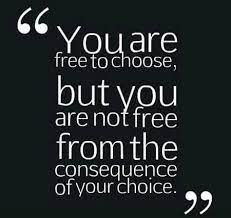Commitment…Ten Letters to a Pledge!
Commitment…Ten Letters to a Pledge!
By Marshall Krupp, Certified EOS Implementer
In collaboration with Ashley Berecz, Client Relations Manager
The Oxford dictionary defines commitment as “the state or quality of being dedicated to a cause, activity, etc.” Websters dictionary defines it as “an agreement or pledge to do something in the future.” Commitments helps us stick to our goals during the good times and the tough times.
Two factors that contribute to a successful commitment is “importance” and “ability”. For a person to commit to anything they need to see it as important, and they need to believe that they are able to carry out the behaviors/tasks that are necessary to achieve it. They are focused on what needs to be done to fulfill the pledge.
I am going to try to make this discussion simple, because simplicity is where we gain the greater wisdom. I offer these thoughts from a place of simple human behavior that we all see from day-to-day and which we experience and feel the consequences of.
We make commitments every day. We do this consciously and unconsciously. Commitments are part of life, and they reflect who we are in terms of our integrity. Commitments are agreements. They may be implicit or explicit. They may be formal or informal. They may be clear and/or concise or they may be vague and/or complex. Regardless of how we view them, once we have made a commitment or made an agreement, we have a personal or inter-personal responsibility to fulfill it.
One might want to argue that an agreement is far deeper than a commitment. However, in reality they are the same. They are a personal pledge to do something in the future.
At the age of 16, most of us went to the Department of Motor Vehicles and took a test to get a driver’s license. When we registered for the license, we made a commitment. That commitment was to follow the driving laws of the State and be a law abiding driver. Not for a month, not for a year, but for our entire life that we hold the drivers license.
Now we all know that regardless of your age today, many of us drive without even remembering the commitment we made. More importantly, many of us drive without even being conscious that we break those commitments.
We are speeding, not using our turn signals, and parking where we should not park. When we are pulled over by a law enforcement officer, he or she is simply holding us accountable to our commitment. Nothing more… nothing less. We are out of integrity and the law enforcement officer is reminding us of that reality.

Do we have the ability to drive and comply with the law? Yes! So, what gets in the way of us not fulfilling our commitment? Most often it is the lack of importance or the lack of priority. We make something else more of a priority
In the moment that we are making the choice of not fulfilling our commitment, do we sit back and ponder the consequences? Probably not! We simply make the choice and hope for the best.
However, in realty everything that we do has consequences. Every choice that we make has consequences. Every time we are out of integrity with a commitment, we are creating consequences whether we are aware of them or not.

Those consequences may have positive or negative results, and many times they have both. When we first ask what the consequences of being out of integrity with a commitment or agreement are, we come up with several that are easily identified.
Take driving down the freeway speeding; the initial consequences are being pulled over by law enforcement and receiving a speeding ticket. But what might have been other consequences of breaking our commitment? A potential accident? Causing the death of someone else? Being arrested? Causing other drivers to be frustrated or causing them to swerve? Sending the message to others that it is OK to speed? We could go on and on identifying real and potential consequences.
However, the one consequence that has the deepest meaning in inter-personal relationships is the consequence of the message that I may send out… “I cannot be trusted to fulfill my commitment and agreement”. This consequence of limited trust can be devasting on relationships and business. The ramifications are vast.
Ten letters! A simple word… commitment. What would it look like if everyone that we touched, everyone that crossed our paths, and each of us were fully in integrity with our commitments and agreements. Even more so, what would it be like if we were fully conscious and awake to the potential consequences of our decisions to commit or agree to do something? Would it elevate those around us? Would we attain greater success and excellence it accomplishing what we want to accomplish? Would our relationships be stronger and more nurtured?
The answers to these questions have profound meaning in my life. I hope they have the same in yours.
If you have any questions or would like to continue this discussion further, please contact us at ashley.berecz@peerexecutiveboards.com or go to our website at www.peerexecutiveboards.com and contact us virtually. We will be happy to get back to you!
_ _ _ _ _ _ _ _ _ _ _ _ _ _ _
EOS®, the Entrepreneurial Operating System® takes entrepreneur businesses on a journey of mastery of the EOS tools which enables businesses to elevate their leadership teams to make better decisions, maintain a level of accountability, at attain greater success more simplistically. The components of EOS® are Vision, People, Data, Issues, Process, and Traction, which when used effectively attains a healthier organization with greater success. Marshall Krupp is a recognized Certified EOS® Implementer serving clients through the nation. He is also a national speaker, a past award-winning Vistage Worldwide Chair, and a past career of providing crisis management strategic advisors service to businesses, governmental agencies and not-for-profit organizations. Review more at www.peerexecutiveboards.com and at www.eosworldwide.com/marshall-krupp.


0 Comments